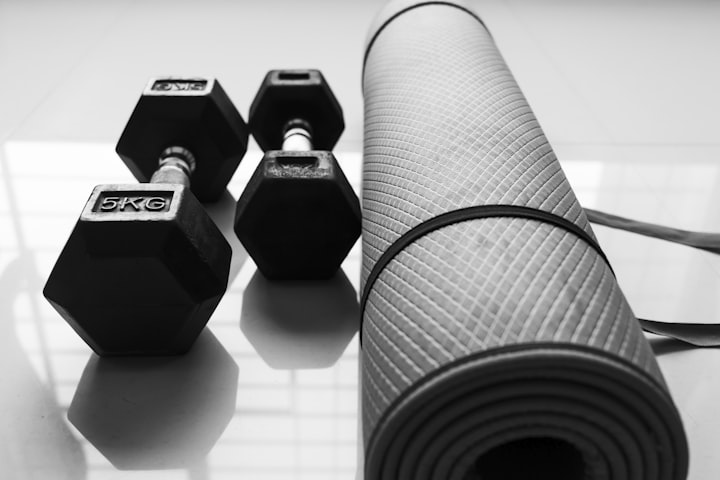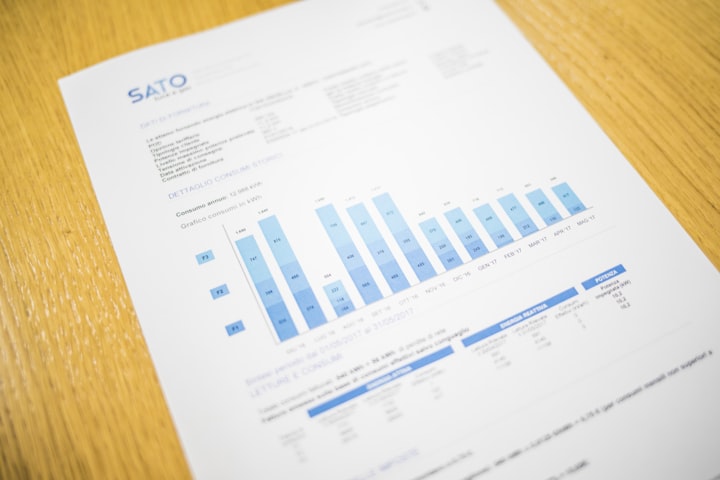The Top Ten Keto Tips for Beginners
Read this article to learn more...

Are you new to the ketogenic diet and looking for the best tips to get started? Look no further! In this blog post, we’ll be providing the top ten essential keto tips for beginners. From understanding what keto is, to getting organized and creating a meal plan, these tips will help you on your journey to a successful keto lifestyle. So, let’s get started and explore the top ten keto tips for beginners!
Start Slow
When you first start a ketogenic diet, it’s important to ease into it. Don’t try to drastically reduce your carb intake all at once. If you do this, your body will go into shock and it can be hard to get back on track. Instead, start with reducing your carbohydrates gradually, so that your body has time to adjust. Focus on eating whole foods like fresh fruits and vegetables, lean meats, nuts, seeds, and healthy fats. Try to avoid processed and refined foods as much as possible. You should also aim for three meals and two snacks per day in order to keep your energy levels up.
Start by introducing one or two low-carb meals a day, and then gradually increase the number of keto meals over time.
Drink Plenty of Water
Drinking plenty of water is one of the most important tips for anyone starting a keto diet. Staying hydrated is critical for maintaining your body’s natural balance and preventing dehydration. Dehydration can cause fatigue, headaches, and other unpleasant symptoms that can make it difficult to stick with your diet.
It is recommended that you drink at least eight 8-ounce glasses of water per day. If you are very active, you may need to increase this amount. It is also important to drink enough water during meals as it helps your body digest the food more efficiently and helps you feel fuller faster. Drinking too much water can be dangerous, so be sure to check with your doctor to determine the right amount for you.
In addition to plain water, unsweetened herbal teas, low-sugar sports drinks, and bone broth are all good sources of fluids on a keto diet. Just be sure to watch out for hidden sugars and additives that can affect your blood sugar levels.
Watch Your Carbs
When it comes to following the keto diet, one of the most important things to keep in mind is to watch your carb intake. Carbs are a major source of energy and when consumed in large amounts, they can take you out of ketosis, preventing you from achieving the desired effects of the diet. It’s recommended to limit your daily carb intake to 20-50 grams. This should include complex carbs from sources like whole grains, legumes, fruits and vegetables. Avoid processed carbs like white bread, pasta, pastries and sugary snacks. It’s also important to know your net carbs, which is the total amount of carbs minus any fiber or sugar alcohols. To stay in ketosis and reach your goals, it’s best to stick to the lower end of the carb range.
Get Plenty of Fat
When it comes to following a keto diet, one of the most important things to remember is to get plenty of fat in your diet. Eating a diet that is high in fat and low in carbs helps your body enter a state of ketosis, which is necessary for the keto diet to be effective.
It’s important to note that the fats you choose matter just as much as the amount. Make sure you’re eating healthy fats such as avocado, olive oil, grass-fed butter, coconut oil, ghee, nuts, and seeds. These are all great sources of healthy fats that will help you meet your daily macros.
Adding healthy fats to each meal can also help you stay fuller longer, allowing you to stick with your keto diet more easily. There are lots of delicious ways to incorporate healthy fats into your meals, such as adding olive oil or ghee to a stir-fry or avocado to a salad. Get creative and experiment with different fats in your meals to make them more enjoyable.
Avoid Sugar
When you’re just starting out on the keto diet, avoiding sugar is key. Sugar is a carb, so it will raise your blood sugar levels, kick you out of ketosis, and make it harder to achieve your weight loss goals. To stay in ketosis and get the best results, avoid all added sugars, including candy, desserts, sweetened drinks, and syrups. Also watch out for natural sugars that are found in fruits, dairy products, and honey. These should be limited as well.
It’s best to stick to low-sugar snacks like nuts, cheese, and boiled eggs. You can also use sugar substitutes such as stevia or erythritol. If you do choose to have a sugary treat, make sure it fits into your daily carbohydrate allowance.
Eat Plenty of Vegetables
Vegetables are an important part of a keto diet. They are packed with vitamins, minerals, and fiber, while also being low in calories and carbohydrates. Eating plenty of vegetables on a keto diet can help you stay full and satisfied while still following the rules of the diet.
The best vegetables to eat on a keto diet are those that are low in carbohydrates, such as leafy greens, cruciferous veggies like broccoli and cauliflower, and other low-carb vegetables like zucchini, bell peppers, mushrooms, and tomatoes. Aim for at least 5-7 servings of non-starchy vegetables per day to get the most out of the keto diet.
Including plenty of vegetables in your meals helps to add flavor, color, and texture to dishes. Roasting vegetables brings out their natural sweetness and adds crunch to salads. Steaming vegetables helps to preserve their nutrients and keep them tender. And adding stir-fries to your weekly meal plan is a great way to get in lots of vegetables without feeling deprived.
Eating plenty of vegetables can also help to reduce cravings for carbs and sugar and can help you stay on track with the keto diet. So add lots of vegetables to your meals and snacks to get all the benefits that come with eating a plant-based diet.
Avoid Processed Foods
Processed foods are one of the biggest culprits when it comes to unhealthy eating habits and weight gain. Processed foods contain added sugars, sodium, and preservatives, which can all lead to weight gain and various health issues.
When it comes to following the keto diet, avoiding processed foods is especially important. Processed foods are often high in carbohydrates and low in fiber, meaning that they’re not great for a keto diet. Instead, focus on eating natural, whole foods like fruits, vegetables, lean proteins, healthy fats, and nuts and seeds.
It’s also important to read labels carefully when shopping for groceries. Many products that appear to be healthy may actually contain a lot of added sugars or other unhealthy ingredients. Avoiding processed foods can help you stay on track with your keto goals.
Avoid Alcohol
Alcohol is not an ideal beverage on the keto diet as it contains carbs. If you do choose to consume alcohol, it’s important to remember that it can slow down your progress and may lead to weight gain. Alcohol also dehydrates the body and can make it more difficult for your body to metabolize fat.
It is best to avoid all forms of alcohol if you are just starting out on the keto diet. If you do choose to drink, moderation is key. Stick with lower-carbohydrate options such as vodka, gin, whiskey or tequila. Be sure to drink plenty of water to stay hydrated.
Exercise
Regular exercise is an important part of any diet, and this is especially true for the keto diet. Exercise helps to speed up weight loss, strengthen muscles and bones, and improve overall health. It also helps to reduce stress and regulate blood sugar levels.
When it comes to exercise on the keto diet, it's important to focus on low-impact exercises that don't require too much energy. Activities such as walking, cycling, yoga and swimming are all excellent forms of exercise that can help you reach your fitness goals while on the keto diet. If you are looking to build muscle, weight training can be beneficial, however it is important to keep your reps and sets low so that your body has enough energy to maintain ketosis.
In addition to physical activity, it's important to get adequate rest as well. Aim for seven to eight hours of sleep each night and take plenty of breaks throughout the day in order to keep your body functioning optimally. This will help you stay energized and focused so that you can continue to make progress towards your fitness goals.
Get Plenty of Sleep
Getting enough sleep is essential for successful keto dieting. Not only does getting sufficient rest improve energy levels, but it also helps regulate hormones such as ghrelin and leptin, which play a role in hunger and satiety. Studies have found that individuals who don’t get enough sleep tend to eat more and gain weight.
When your body is lacking in sleep, it will produce cortisol which can raise your blood sugar and make you crave unhealthy foods. Getting seven to eight hours of sleep a night will help you stay focused and motivated on your weight-loss journey.
In addition to improving your overall health, sleep helps to reduce stress levels. Stress can lead to increased hunger levels and cravings, making it harder to stick with your diet. Ensuring you get plenty of rest will help keep stress levels at bay, allowing you to stay on track with your diet.
Finally, sleep can also help improve cognitive function, making it easier to make healthy food choices. Being well-rested helps improve decision-making skills, allowing you to make better food choices when it comes to your keto diet.
Getting enough sleep is essential for successful keto dieting. Ensure you are getting seven to eight hours of rest each night to stay focused and motivated on your weight loss journey. Not only will this improve your energy levels, but it can also help reduce stress levels and improve cognitive function, allowing you to make better food choices when it comes to your keto diet.
Additionally, staying hydrated is key when following the keto diet. Make sure to drink plenty of water throughout the day to prevent dehydration. As you switch over to a low carb lifestyle, your body might experience some dehydration due to a lack of glycogen stores. Drinking water will also help flush out any toxins from the body, reducing inflammation and improving digestion.
Eating enough protein is important too. Protein not only helps provide fuel for the body, but it is also important for muscle maintenance and growth. Make sure to consume adequate amounts of protein throughout the day to ensure your muscles remain strong while you transition into the keto lifestyle.
Finally, try incorporating intermittent fasting into your routine. This type of fasting involves eating within a certain time window each day or week and then going an extended period without food.
If you want to learn my#1 way to master the Keto diet click here now.
About the Creator
Arthur Kenney
Trying to spread knowledge to the people who need help in their quest..






Comments
There are no comments for this story
Be the first to respond and start the conversation.